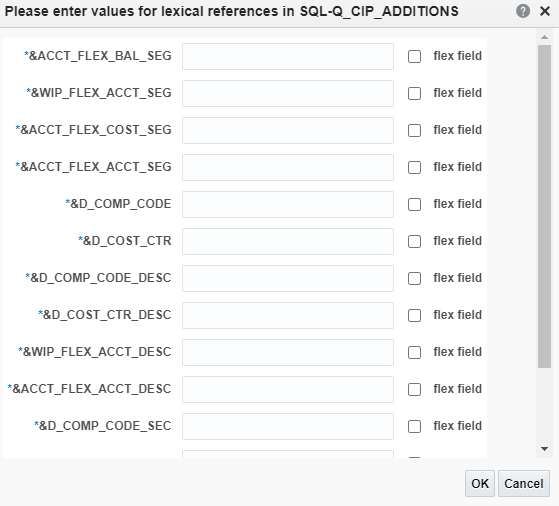So, you have defined a bunch of DFFs but wondering why they don't appear in the corresponding subject areas when you build an OTBI Analysis ?
Well, let's see how you can enable them for BI analysis purposes and use in OTBI.
Below are the steps to enable a DFF for BI / OTBI Analysis/Reporting
- Navigate to Setup and Maintenance
- Change Functional area to the desired one.e.g. Financials
- Search for something like Manage%<module>%Flexfields
e.g. Manage%Receivables%Flex%
- Open the Task
Enter the desired Flexfield Code (e.g. RA_CUSTOMER_TRX%)
Click Search
- Select the desired DFF and click Edit
- Select the Segment and click Edit
- Scroll all the way down and Enable the option ‘BI Enabled’
- Save and Close
Now, navigate to Scheduled Processes
Schedule New Process –
Import Oracle Fusion Data Extensions for Transactional Business Intelligence
Run it for desired functional area (e.g. Financial Reporting)
Let the program finish. (It may take some time to complete).
If Process completes in Warning -
As per Doc ID 1616574.1, even if the process ends in a Warning, the Flexfield import will complete therefore the functionality of the job is not adversely affected.
Once process is finished -
- Navigate to Catalog and open the desired subject area
- You should see the DFF fields are now available in the subject area –



























